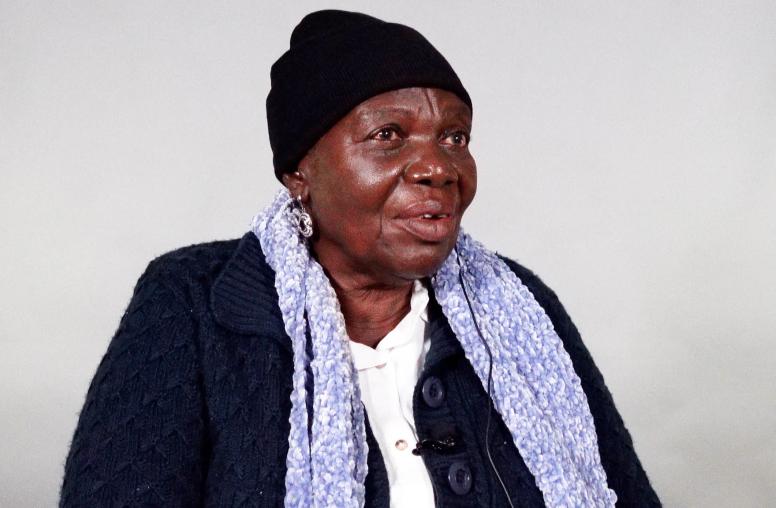USIP, FP Group Launch Inaugural PeaceGame with Syria Focus
The U.S. Institute of Peace (USIP) and the FP Group jointly held their inaugural “PeaceGame” on December 9 at the Institute, an exercise that drew on a wide range of foreign policy specialists to examine what “the best possible peace for Syria” might look like.

With governments and think tanks having long devoted significant resources to “war games” that simulate the analysis and decision-making in a conflict, the PeaceGame is intended to consider scenarios for peace and the practical steps and conditions necessary to achieve it. USIP and FP decided to focus their first such collaboration on Syria, where a brutal civil war has claimed more than 100,000 lives, caused 2.2 million refugees to flee to other countries and brought sectarian tensions in parts of the Middle East to dangerous levels.
“Peace is complex [and] has so many working parts,” noted David Rothkopf, CEO and editor of the FP Group. He described the PeaceGame as an effort to “identify critical drivers of peace, critical challenges.”
Kristin Lord, USIP’s executive vice president, remarked that the day-long discussions produced “more hope than I expected” about eventual peace prospects and a clearer recognition that a successful peace effort for Syria might be driven from international actors or from the region, including from within Syria itself.
The PeaceGame event was made possible in part through a grant from the Embassy of the United Arab Emirates (UAE) to the FP Group, which also supports FP’s new Peace Channel at www.foreignpolicy.com. USIP staff will be contributing analytical articles to the Peace Channel on peace and conflict-management issues. The Institute and FP will also be collaborating on an educational outreach initiative about peace for young people.
The UAE’s ambassador to the United States, Yousef Al Otaiba, said of the PeaceGame: “It promises to change the way we think about war and peace….It will change and raise our game in helping us chart a non-violent path.” FP and USIP plan to conduct a PeaceGame twice a year, alternating between the United States and the Middle East.
The December 9 PeaceGame drew 43 foreign policy specialists, including former U.S. officials, who were assigned to play the roles of international and Syrian actors in the ongoing conflict. An expert panel provided additional perspectives throughout the PeaceGame sessions. Audience members were also able to participate through the use of wireless polling on questions about the challenges of forging a peace in Syria. The discussions, which were webcast live, ranged over several phases of a possible peace effort, including a near-term political solution, the elements of establishing a peace and the creation of sustainable peace for the long haul. The program also attracted considerable comment on social media, with more than 2,600 “tweets” sent on the 9th.
“It is time to get serious about peace,” Rothkopf and Lord wrote in one of the background papers, "The Alternative to War," prepared for the PeaceGame. “What if we approached the achievement of peace with the same kind of time, energy, resources, and realism with which we approach preparing for wars?” they asked.
In another background paper, The Big Picture, USIP’s Vice President for Applied Research on Conflict Steven Heydemann acknowledged, “Today, Syria’s civil war shows few signs that it is nearing a resolution….Yet imagining what a plausible peace could look like can help us to imagine what we must think about now to make peace more likely and, once it has arrived, more durable.”
Heydemann laid out a conceptual framework for a workable peace, saying that all the relevant actors in the Syrian conflict—in essence, those with de facto veto power over a peace settlement—have to prefer peace over the further pursuit of violence to achieve their aims. Moreover, for a peace to work, its terms would need to meet the minimum requirements of those key actors and, at the same time, any players who would act as “spoilers” would need to be contained or marginalized, he said.
Some participants in the first PeaceGame noted the contributions made by outside diplomatic and political engagement in resolving earlier crises in Bosnia, Lebanon and Northern Ireland. In the Syrian case, Rothkopf and others explored the importance of the difficult task of encouraging Russia and Iran to put pressure on their ally in Damascus—the regime of Bashar Al-Assad—on behalf of a viable peace.
At the same time, some participants questioned whether the basic conditions exist yet for the key antagonists in the Syrian civil war to favor a negotiated peace over a continuation of violence. As one, Hans Binnendijk, a former U.S. National Security Council staff member now with the Center for Transatlantic Relations at the Johns Hopkins School of Advanced International Studies, remarked, “The situation today is less ripe for a peace process than it was a year ago.”
Explore Further
- Syria Gamers at USIP Jockey for 'Best Possible Peace'
- PeaceGame event page
- Background papers prepared for the inaugural PeaceGame, along with relevant USIP PeaceBriefs:
- The Big Picture, By Steven Heydemann
- Neighborhood Watch, By Rachel Brandenburg
- Rift Removal, By William B. Taylor
- Peace Economics, By Ethan Kapstein & Amanda Mayoral
- From Ceasefire to Stability, By Jeffrey Krentel & William B. Taylor
- The Lessons of Talk, By Pamela Aall
- The Alternative to War, By David Rothkopf & Kristin Lord
- Sectarianism PeaceBriefs (various authors)



